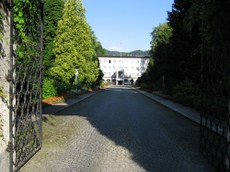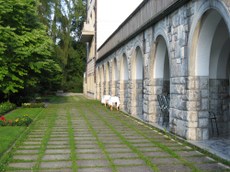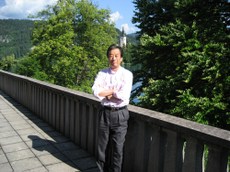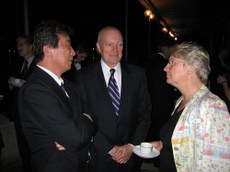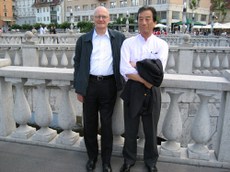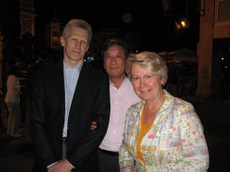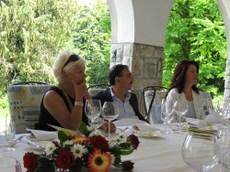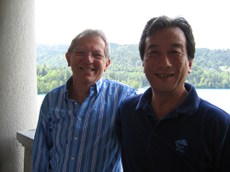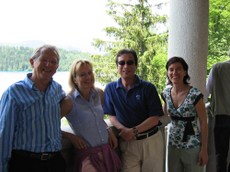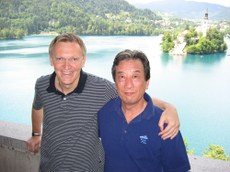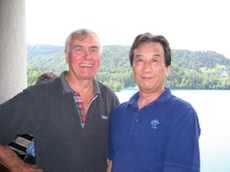Have you heard of RedHerring?
It’s a famous media in Silicon Valley. They held a 2 day conference from July 22 to 24 in Kyoto, for the first time in Japan. Venture entrepreneurs and venture capitalists gathered. I was asked to make a speech on “Innovation” so I went to participate. You can see part of the program, speakers and panel in RedHerring Japan 2007 site. I was new to such kind of gatherings, so to get a grasp of what it was like, I took part from the first day. People like Mr. Semmoto formerly from KDDI (also met him in St.Petersburg in June) and Mr.Idei formerly from Sony (I introduced him in my blog in April “From Camarague”) were familiar to me, but to know the audience before I speak is very important, so thought that it was a good opportunity.
Approximately there were about 150 participants. Half were Japanese and the rest were diverse, but all young. 70% of the Japanese were from Silicon Valley. Half of the foreigners were based in Japan and there were a lot of Koreans from Silicon Valley. Most of them were ICT related ventures and not so many bio people.
Mr. Fredrick Haren from Sweden talked about “Creativity, Innovation” which was very unique and full of impacts. (Some people may say that he is an "out of box" type.) He introduced his book called “New Ideas” and later, as we got along so well, gave me the book saying he brought some with him. I seem to be compatible with queer people. Maybe because we share something like Don Qixote? Sounds odd, though.
Well, since it was like that, I listened to other people’s story and changed my slides back and forth. Eventually, I used the slides at GIES2000 and part of Prof. Jorgenson’s slides that was used at the Workshop in June. These were updated slides based on Prof. Jorgenson’s latest book, 「Productivity: Information Technology And the American Growth Resurgence」(MIT Press, 2005). This is a perfect guide to learn about the growth in the US industry and IT related companies after the IT bubble burst in 2000. For everyone in the industry, policy, university related field, please read it thoroughly. This is another example of dynamism of United States that many such books are published from universities. I closed my speech referring to Steve Jobs’ 2005 commencement speech at Stanford University. It goes like this.
1) you can’t connect the dots looking forward; you can only connect them looking backwards. So you have to trust that the dots will somehow connect in your future. You have to trust in something…
2) You’ve got to find what you love. Don’t settle.
3) Death is Life’s change agent.
4) STAY HUNGRY, STAY FOOLISH!
To grasp the meaning of these, you have to read his speech thoroughly. Go to the link that I cited above. I think it is a wonderful message. I envy the graduates for being given the chance to listen to his live speech. By the way, Bill Gates delivered a commencement speech this year at Harvard, and this is also a very touching speech. Their words are based on their true experience, therefore convincing more than anything else.
Since I closed my speech with this slide, President of RedHerring, Mr. Alex Vieux who acted as MC totally got happy and added his story after my speech. I was delighted.
The participants were obviously not the Japanese businessman type that I usually see. They enjoy their work, young, energetic, outspoken, and spoke out without caring whether their English was good or bad. It was quite interesting.
I met with Ms. Etsuko Okajima, a friend of Yoko Ishikura and met many other people. You can see photos of the party etc. at http://v.japan.cnet.com/blog/katsuya/2007/07/24/entry_27011214/. (My photo was posted too!)
